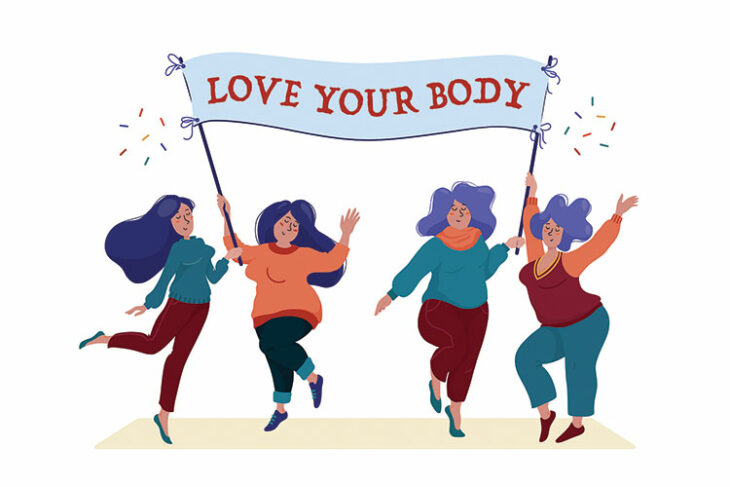
By Dr. Dorothy Dickson-Rishel
Can you be healthy at any size? The answer is both yes and no.
The relationships among size, weight, shape and overall health are complicated and regularly misunderstood. People are healthy and unhealthy at different weights and with a diversity of body shapes and sizes.
Knowing your numbers is important, but health is not just a number. Metabolic health, biomarkers such as blood glucose, cholesterol and blood pressure in the medically “ideal” range, can be present in persons with higher body mass index, or BMI, numbers. The opposite also proves true. People who seem to be the “right” size can be harboring disease processes that threaten their overall well-being and longevity.
Size is a deceptive measure of someone’s health. People with a higher BMI remain statistically at higher risk for chronic diseases, including type 2 diabetes and heart disease, and functionally may have more difficulty engaging in activities they enjoy or help keep them fit.
Weight stigma also persists as an unfortunate reality within our society. Its impact can have health consequences beyond the social or emotional. Studies indicate that experiencing “body shame” raises the risk not only of depression and anxiety and limited socialization or withdrawal, but also can raise cortisol levels that long term contribute to increased inflammation, poorer immunity, decreased sleep and even more weight gain. No matter your size, obsessing and fixating on shape or weight often leads to increased worries, weight cycling with unsustainable changes in eating or exercise, lower self-esteem and confidence and poorer health outcomes. Too much focus on the scale or size for most people becomes counterproductive.
How do you untangle the complex relationships of size and health and embrace how we are made?
Take a long, compassionate look at your body and your life situation and readjust attitudes as necessary. Health, according to the World Health Organization (WHO), is “a resource for everyday life, not the object of living.” It is a “state of physical, mental and social well-being.” The goal of healthy self-care is to be capable of living our lives to the fullest, not to be a predetermined perfect size. Your body is your vehicle to all your experiences and accomplishments. It may need a tune up or a refueling, but it can still be appreciated and valued. The decision to live fully in your current body is part of the process of healthful living.
A re-examination of the messages you have received and created about body size frequently yields more body positivity and better health. Many automatic thoughts may be based on media or marketing images and exceptional body types that are not inclusive of the wide diversity of ethnicities, gender roles, disabilities and customs in the population. Challenge notions that center on weight status or size or elicit shame. Redirect negative thoughts to positive affirmations, health goals and self- acceptance. Are there particular features of your body that resemble and remind you fondly of relatives or your heritage? Perhaps you have scars or marks that serve as badges of honor for challenges you have overcome or mementos of good experiences. Notice these aspects and be proud of their connection. Talk to yourself as if you were encouraging a friend or a child.
Building an environment of acceptance and concentrating energies on aspects of the body that are amenable to behavioral change promotes improved well-being. Emotional health, unblemished by enduring guilt or shame and unburdened by unnecessary anxiety, emerges as a critical ingredient to overall health. Body positivity can begin immediately and occurs daily. Attend to your important medical numbers but also to your body’s cues on hunger, thirst and fatigue. Eat slowly and enjoy the satisfaction that good nutrition can bring. Avoid waiting for changes in weight or size to increase physical activity. Begin practicing an activity because it engages your interest or spirit rather than fulfils a requirement for exercise. Purge or store clothing that is uncomfortable or fits poorly and dress to amplify your sense of confidence. Practice mindfulness using meditation, relaxation or prayer techniques to accentuate the good things that are happening within your life. Honoring your body not only feels good, it creates better health.
Dr. Dorothy Dickson-Rishel, PhD, specializes in psychology and physical medicine and rehabilitation at Memorial.



